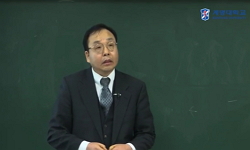이 글은 아이켄베리(G. John Ikenberry)의 자유주의적 국제주의가 중국을 이해하고 타자화하는 방식의 변화를 분석함으로써 자유주의적 국제주의 및 자유주의 국제질서에 대한 이해를 심화시키...
http://chineseinput.net/에서 pinyin(병음)방식으로 중국어를 변환할 수 있습니다.
변환된 중국어를 복사하여 사용하시면 됩니다.
- 中文 을 입력하시려면 zhongwen을 입력하시고 space를누르시면됩니다.
- 北京 을 입력하시려면 beijing을 입력하시고 space를 누르시면 됩니다.

자유주의 국제질서와 중국, 그리고 미국 패권: 아이켄베리의 대중국 인식 변화 비판 = Liberal International Order, China, and American Hegemony: A Critique of Ikenberry’s Evolving Views on China
한글로보기https://www.riss.kr/link?id=A109639819
- 저자
- 발행기관
- 학술지명
- 권호사항
-
발행연도
2025
-
작성언어
Korean
-
주제어
liberal international order ; China ; othering ; American hegemony ; John Ikenberry ; 자유주의 국제질서 ; 중국 ; 타자화 ; 미국 패권 ; 존 아이켄베리
-
등재정보
KCI등재
-
자료형태
학술저널
- 발행기관 URL
-
수록면
31-69(39쪽)
- 제공처
- 소장기관
-
0
상세조회 -
0
다운로드
부가정보
국문 초록 (Abstract)
이 글은 아이켄베리(G. John Ikenberry)의 자유주의적 국제주의가 중국을 이해하고 타자화하는 방식의 변화를 분석함으로써 자유주의적 국제주의 및 자유주의 국제질서에 대한 이해를 심화시키고자 한다. 그의 대중국 인식은 크게 세 가지 요인에 대한 그의 평가 변화로 인해 세 단계로 발전하였다. 중국의 민주화 전망과 서구 중심 자유주의 국제질서의 안정성, 주요 위협 인식이 그 요인이다. 이에 따라 아이켄베리의 정책 처방 역시 세 단계로 변화했다. 첫째, 중국을 자유주의 국제질서 속으로 통합할 수 있다는 관여론이다. 둘째, 중국의 통합은 포기하지만, 여전히 근대성으로 인한 위협과 질서 내부의 도전에 주목하며 중국의 위협보다는 기존 질서의 경쟁력 제고를 강조하는 경쟁론이다. 셋째, 중국을 권위주의적 수정주의 세력으로 규정하여 자유주의 국제질서에서 배제하고 전면적인 체제 대결을 강조하는 배척론이다. 이 과정에서 자유주의 국제질서가 미국 없이도 가능하다는 기존의 시각에서, 질서의 지속은 미국의 패권을 통해서만 가능하다는 주장으로 선회했다. 또한 자신이 이론적으로 포장해 온 자유주의 국제질서 개념을 현실에서 점차 옹호하기 어려워지자, 그 사상적 기초라 할 수 있는 자유주의적 국제주의에 대한 기원을 서구 역사와 교묘히 결합하는 작업으로 초점을 이동했다. 그러나 이렇게 변화한 그의 이론 체계에서 일관된 요소는 보편성과 포용성이 아닌, 서구중심주의다.
다국어 초록 (Multilingual Abstract)
This article investigates the liberal bias in liberal internationalism by tracing John Ikenberry’s changing perception on China. His view on China has evolved by three stages as his assessment of three factors has changed: The prospect of Chinese de...
This article investigates the liberal bias in liberal internationalism by tracing John Ikenberry’s changing perception on China. His view on China has evolved by three stages as his assessment of three factors has changed: The prospect of Chinese democratization, the stability of Western liberal international order, and major threat perception. His prescription for China has changed accordingly in three modes. First, engagement, which believed the vision of China’s integration into the order. Second, competition, which abandoned the goal of integrating China, but still primarily focused on renewing the order’s competitive edge against China. Third, ‘excommunication’ or driving out, which labeled China as an autocratic revisionist outside the order and sought to ostracize it. Ikenberry completely overturned his previous view that the liberal international order could persist without American hegemony and shifted to the position that those two are inseparable. As he found it increasingly difficult to defend the concept of the liberal international order he had theoretically framed, he shifted his focus to cleverly linking the origins of liberal internationalism, which forms its ideological foundation, with Western history. A consistent feature of his changing argument, however, is its Western-centered perspective, rather than universality or inclusiveness.
동일학술지(권/호) 다른 논문
-
- 서울대학교 국제학연구소
- 임경한
- 2025
- KCI등재
-
한국 물 분야 공적개발원조(ODA) 사업의 공공성에 관한 연구: 2014년~2023년 물 분야 ODA사업의 주체, 이익대상, 접근성
- 서울대학교 국제학연구소
- 김보람
- 2025
- KCI등재
-
지역안보협력체의 결속력: 상하이협력기구(SCO)와 중 ∙ 러 리더십경쟁
- 서울대학교 국제학연구소
- 유기은
- 2025
- KCI등재
-
준식민화 전쟁과 근대 지구적 국제질서: 탈식민주의 불균등결합발전론으로 본 아편전쟁
- 서울대학교 국제학연구소
- 이경아
- 2025
- KCI등재




 DBpia
DBpia







